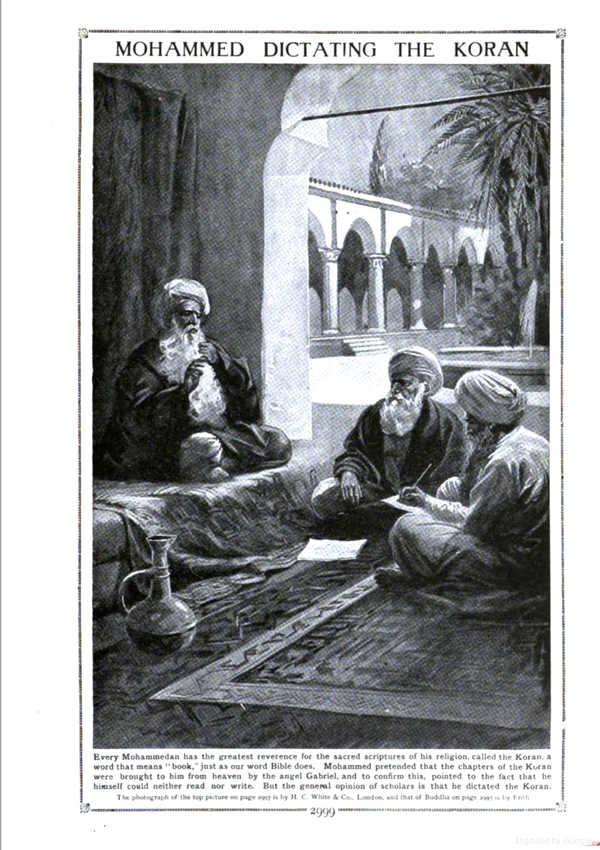When Salman Rushdie mocked Islamic sanctities in 1989 in his magical realist novel The Satanic Verses, Ayatollah Khomeini did something shockingly original: He pronounced a death edict on Rushdie and all those connected to the production of his book. By doing this, Khomeini sought to impose Islamic mores and laws on the West; we don't insult the prophet, he effectively said, and neither can you.
That started a trend of condemning those in the West deemed anti-Islamic that persists to this day. Again and again, when Westerners are perceived as denigrating Muhammad, the Koran, or Islam, Islamists demonstrate, riot and kill.
Khomeini's edict also had the unexpected side effect of empowering individuals – Western and Islamist alike – to drive their countries' policies.
On the Western side, Fleming Rose, a newspaper editor, created the greatest crisis for Denmark since World War II by publishing twelve Muhammad cartoons. Florida pastor Terry Jones caused panic for American commanders in Afghanistan by threatening to burn a Koran. Nakoula Basseley Nakoula and friends prompted a crisis in U.S. relations with Egypt with an amateurish video, Innocence of Muslims. By publishing vulgar pictures of Muhammad, French weekly Charlie Hebdo is causing the French government temporarily to shut down diplomatic missions in twenty countries. Plans by the German satirical magazine Titanic to publish attacks on Muhammad have likewise caused German missions to be closed.
On the Islamist side, an individual or group took one of these perceived offenses and turned it into a reason to riot. Khomeini did this with The Satanic Verses and Ahmad Abu Laban did likewise with the Danish cartoons. Hamid Karzai goaded Afghans to riot over burned Korans by American soldiers and Egyptian preacher Khaled Abdullah turned Innocence of Muslims into an international event.
In brief, any Westerner can buy a Koran for a dollar and burn it, while any Muslim with a platform can transform that act into a fighting offense. As passions rise on both sides of the democratized Western / Muslim divide, Western provocateurs and Islamist hotheads have found each other and confrontations occur with increasing frequency..
 Kurt Westergaard's 2005 image of Muhammad with a bomb in his turban. |
Would repetition inspire institutionalization, generate ever-more outraged responses, and offer a vehicle for Islamists to ride to greater power? Or would it lead to routinization, to a wearing out of Islamists, and a realization that violence is counter-productive to their cause?
I predict the latter, that a Muhammad cartoon published each day, or Koranic desecrations on a quasi-regular basis, will make it harder for Islamists to mobilize Muslim mobs. Were that the case, Westerners could once again treat Islam as they do other religions – freely, to criticize without fear. That would demonstrate to Islamists that Westerners will not capitulate, that they reject Islamic law, that they are ready to stand up for their values.
So, this is my plea to all Western editors and producers: display the Muhammad cartoon daily until the Islamists get used to the fact that we turn sacred cows into hamburger.
Mr. Pipes (www.DanielPipes.org) is president of the Middle East Forum.
Sep. 21, 2012 addendum: Arthur Mee published the multi-volume Book of Knowledge - Children's Encyclopedia in 1911. One copy of it quickly reached a mission school in Anantnag, Kashmir, where it lay quietly for 62 years until, one fine day in 1973, Islamists took offense at a picture (on p. 2999) showing "Mohammed Dictating the Koran." Riots in Srinagar left four dead and many more injured.
 From the "Book of Knowledge" (1911). Caption: "Every Mohammedan has the greatest reverence for the sacred scriptures of his religion, called the Koran, a word that means 'book.' just as our word Bible does. Mohammed pretended that the chapters of the Koran were brought to him from heaven by the angel Gabriel, and to confirm this, pointed to the fact that he could neither read nor write. But the general opinion of scholars is that he dictated the Koran. |
Sep. 24, 2012 updates: (1) I respond to an Islamist criticism of this piece, again at FoxNews.com, in "Mocking Muhammad Is Not Hate Speech."
(2) A reader points out the striking resemblance between the Westergaard cartoon above and the Saudi flag below. Both contain two elements: the shahada ("There is no deity but God and Muhammad is His prophet") and a weapon (bomb, sword). It's just the imaginary face of Muhammad that distinguishes them.
 The flag of Saudi Arabia. |
Sep. 25, 2012 update: The Los Angeles Times tells about two ex-Muslims, Mosab Hassan Yousef and Ali Sina, who have plans to make big-budget derogatory films showing Muhammad on screen To which I can add a third ex-Muslim with the same intent, Imran Firasat.
Sep. 26, 2012 update: The cover of Spain's El Jueves magazine asks "Does anyone know how Muhammad looks?"

Oct. 4, 2012 update: The cover of the German satiric weekly Titanic shows the wife of the former German president with a Muslim warrior and claims, facetiously, that she is making a film about Muhammad.

May 25, 2013 update: This article contributed to the conviction and sentencing of a prominent Turkish intellectual. For details, see "Sevan Nişanyan, Sentenced to a Turkish Prison: My Role."
May 3, 2015 update: For reasons explained above, I endorse the "Mohammed Art Exhibit and Contest" that took place today in Garland, Texas. It had a particularly satisfying result, flushing out two jihadis, lessening the risk to the rest of us.
 The winning cartoon, by Bosch Fawstin, in the "Mohammed Art Exhibit and Contest." |
Oct. 28, 2021 update: News from Pakistan: "Four police officers were killed and hundreds injured after armed members of a hard-line Islamist group clashed with Pakistani security forces Wednesday near the northeastern city of Lahore during a protest over a French newspaper's publication of cartoons depicting the prophet Muhammad."
Jan. 21, 2023 update: By burning a copy of the Koran today outside the Turkish embassy in Stockholm, Rasmus Paludan, an anti-Islamic politician, has managed to provoke an international row. Türkiye's government responded to his provocation by condemning it as a "vile act," protesting the Swedish government's allowing it too take place as "completely unacceptable," canceling a visit by Sweden's Defence Minister Pal Jonson on the ground that the trip had "lost its significance and meaning." That trip, incidentally, was intended to end Ankara's objections to Sweden joining NATO, so not a minor excursion.
